I’m a sucker for crime novels featuring amateur sleuths who are either self-styled “outsiders” or who are perceived that way by society. Crime fiction is awash with P.I s and detectives juggling emotional baggage while solving a case—it’s their job, after all, so they’re the natural (and often most satisfying) perspective through which the crime is resolved. The amateur sleuth can be a trickier proposition. For a start, they need to have a plausible crime-solving motivation (unless they’re a ‘mystery magnet’ character like Miss Marple), and without official access to back-up, tech or the authority to investigate or interrogate, they tend to have to be a little more creative when sticking their nose in. Add in an atypical personality, profession or quirk, and the ante and obstacles are upped. The following novels all feature unique, brilliantly drawn characters, all of who find themselves sucked into the role of unlikely amateur detective. I’ve returned to them again and again.
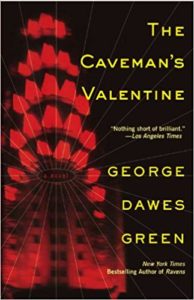
The Caveman’s Valentine, by George Dawes Green
The protagonist, Romulus Ledbetter, once a brilliant pianist, now struggles with mental health issues and lives in a cave in a New York park. When the frozen body of a photographer’s model is found outside his cave, he decides to conduct his own deeply unconventional investigation. Original and lyrical.
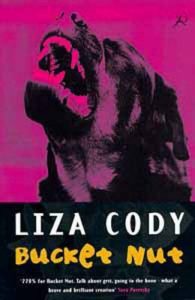
Bucket Nut, by Liza Cody
Before Glow was even a twinkle in Netflix’s eye, there was this barn-stormer of a novel. Bucket Nut is the stage name of a self-described ‘big and ugly’ British female wrestler who moonlights as a security guard (aided by two smelly, vicious Rottweilers). She’s saving up to get her teeth fixed and runs dodgy errands on the side for a guy who may or may not be part of the Chinese mafia. Not the brightest wrestler in the gym, she finds herself in the middle of a racketeering scam when she rescues a backing singer named Goldilocks from a nightclub police raid.
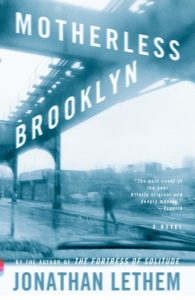
Motherless Brooklyn, by Jonathan Lethem
Lethem’s protagonist, Lionel Essrog, a semi-successful gangster’s henchman and wannabe P.I with severe Tourettes, decides to make it his mission to solve his boss’s murder. I’m cheating a little by including this novel, as Essrog isn’t strictly an amateur, but he is certainly fits the bill of an outsider. His condition both helps and hinders his investigations, and Lethem creates a flawed protagonist who incites sympathy but never pity in the reader. Published in 1999, the long-awaited film adaptation is about to be released.

Complicity, by Iain Banks
A chain-smoking, coke-snorting, fast-talking Scottish journalist, whose morals are as compromised as his health, gets sucked into a serial killer investigation, which has ties to a brutal event in his childhood. Dark, funny and more than a little twisted, this is Banks at his best.

The Cutting Room, by Louise Welsh
Set in Glasgow, which Welsh portrays so viscerally it’s practically a character itself, this debut deservedly hoovered up most of the crime awards going when it was first published in 2002. The protagonist is a cruelly witty, introspective, promiscuous auctioneer, who is asked to dispose of the possessions of a man who clearly has some very dodgy secrets tucked away in the attic. Unputdownable and laced with delicious black humour.
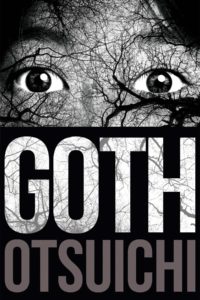
Goth, by Otsuichi
Not for the faint of heart. Extremely gruesome collection of stories, mostly told via the POV of an unnamed eccentric Japanese teen, who, with their unconventional sidekick, Morino, indulge their obsession with murder. Be warned: Ryu Murakami levels of disturbing.

The Lonely Dead, by Michael Marshall
The second in Marshall’s series about the horrific group of serial killers and abductors known as the Straw Men. His protagonist is a misanthropic, self-destructive ex-CIA agent, who chain-smokes as if his life depended on it. Although this is a dark-as-they-come serial killer thriller, the novel is peppered with funny, caustic, socially relevant asides (such as a great diatribe on the disappearance of old-school smoky bars and coffee houses).
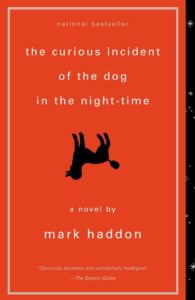
The Curious Incident of the Dog in the Night-Time, by Mark Haddon
When his neighbour’s dog is murdered by pitch-fork, Christopher Boone, a boy who is most likely on the autism/Aspergers spectrum, decides to solve the crime, only to uncover the answers to a different, more personal mystery. Not strictly a crime novel (it’s a stretch to even call it a mystery), I couldn’t leave this out, as (in the words of the author), ‘Curious Incident is … a novel about difference, about being an outsider, about seeing the world in a surprising and revealing way.’




















